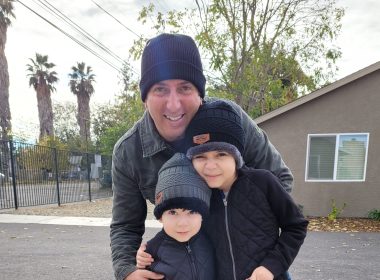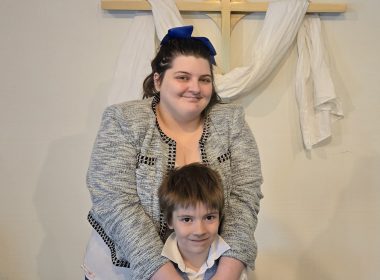By Kelly Pontsler, Major –
“You need to toot your own horn,” she said.
I had just sat down in the chair for a haircut. As the stylist wrapped the cape over me, she asked about my uniform, and a conversation about The Salvation Army’s work in Southern Nevada began. She noted our bell-ringing at Christmas and confirmed her regular donations to the Army thrift store. She nodded as I talked about family assistance and homeless services, church programs and after-school activities for kids.
After a moment of reflection (all the while cutting my hair), she concluded that no one really knows about any of that.
“You need to tell them what you do,” she said.
I’ve been chewing on that conversation for a few days. Are we really that bad at telling our story? A common lament in nonprofit circles these days is that the general public undervalues the contribution of many fine organizations and the result is waning financial support. I regularly sit in agency meetings and hear this same concern: “They don’t know what we really do and donations are down.”
But community support isn’t limited to funding. A word of support on our behalf in a community forum, a steady flow of hands-on volunteers to prepare and deliver services, an occasional shout-out in the local media for our transforming impact on the lives of individuals and families—these matter, too. How far should we go in seeking the limelight?
Jesus didn’t hesitate to point out those who would stand outside the synagogues and pray with great flourish and embellishment, making sure that every passerby would know how pious they were, then instructed his disciples to make their prayers privately, with sincere hearts. Jesus also noted the woman giving her humble offering of a couple of coins, quietly and with a right spirit, in contrast to the rich whose offerings could fill the box but were given in order to be seen. There doesn’t seem to be much room there for horn-tooting and limelight.
I will admit that I’m not a great salesperson. I recall (with a groan) my feeble attempts at selling Girl Scout cookies as a child. And my worst ever assignment as a summer cadet was having to sell small Salvation Army flags at a divisional event. I got it done, but it wasn’t remotely enjoyable in either case.
I once asked a Salvation Army fundraiser how she could ask for donations all day (admitting to my own unease in this regard), and she said this: “I love it because it’s not about me. If I were asking for myself I would never be able to do it, but it’s not about me or for me.”
It was one of those moments when the lightbulb came on. Telling the Army story is not about me or for me. I’m always nervous in front of a camera, but on behalf of those we serve, and for their sake, I’ll gladly step into the limelight any day.
I do believe that as Salvationists we are very good at telling our story…to each other. Get a few of us in the room at a public conference or event, and we latch on to each other. We speak a common Army language and the conversation flows. It’s comfortable there (I’m guilty, too). But imagine the impact it would have if we seized every opportunity to go public with the story of the Army at work in our town? Every Rotary lunch, every shopping trip, every agency meeting, every haircut.
In passing judgement on those he observed, Jesus wasn’t saying there’s no room to tell our story—it’s just not supposed to be selfishly, egotistically all about us. The real story is about God, his work in us, and through us—and the work he’s waiting to do in the lives of those we serve.
Now that’s a horn worth tooting.








